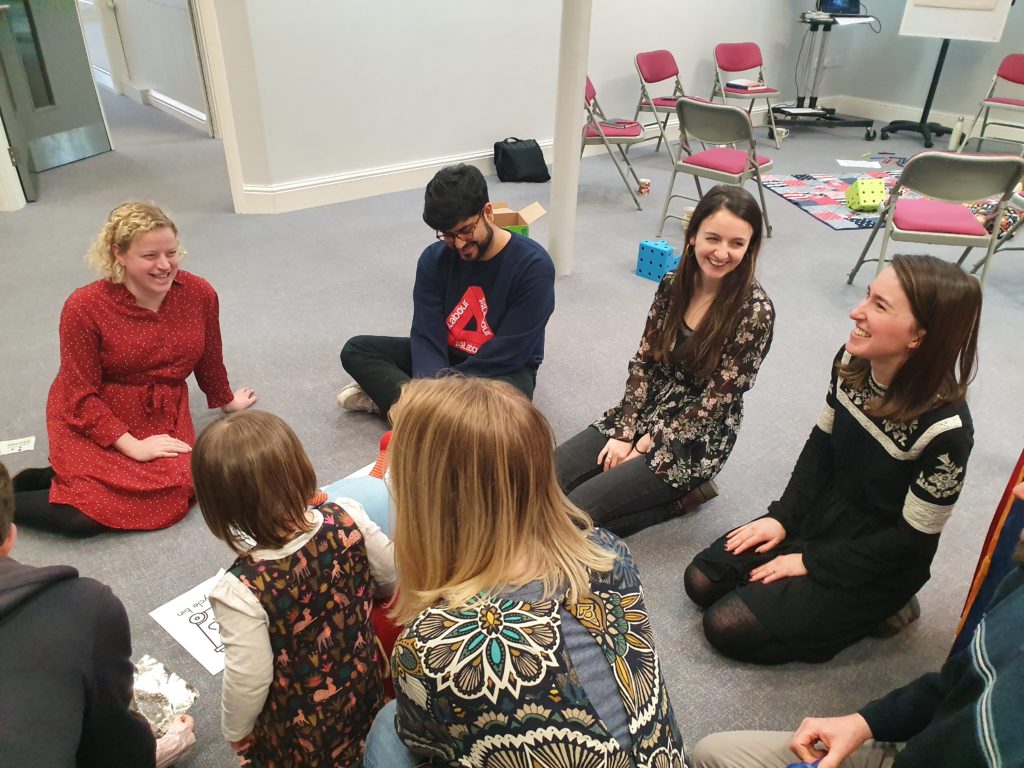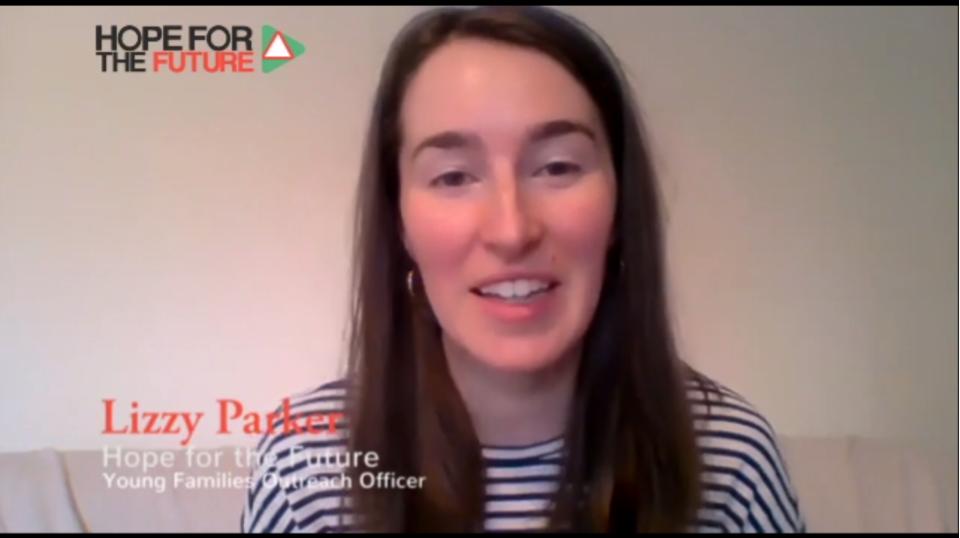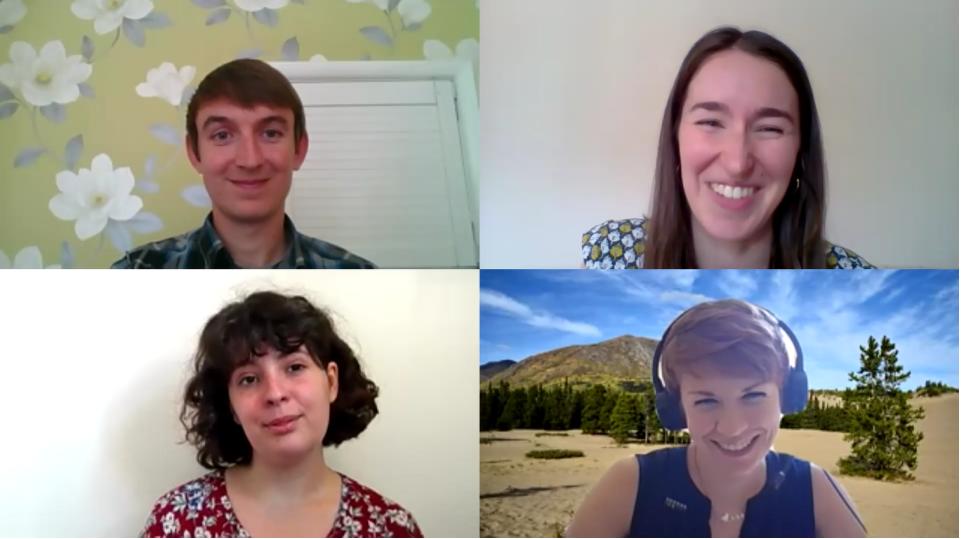Lizzy Parker is a PhD student at the University of Sheffield who spent 6 months working part-time at Hope for the Future. Hope for the Future is a national climate communication charity which works to equip communities, groups and individuals across the country to help communicate the urgency of climate change with their local politicians. Keep reading to find out more about what Lizzy’s role involved and why she chose to do this particular placement!
What did you do on your placement?
There were three projects within my placement which evolved a lot over the 6 months. I researched how grassroots political engagement could influence political action on climate change and wrote a literature review for the organisation drawing on diverse fields such as psychology, politics and environmental communication. I was also tasked with researching how the (relatively young) charity could go about evaluating their work in the context of both training provision and advocacy. This involved conversations with everyone in the organisation, undertaking some quantitative analysis and feeding back to the trustees responsible for governance and evaluation.
I also acted as the lead on a project that Hope for the Future wanted to trial, working to bring their training to families with young children. As a parent to a 3-year-old myself, I found this a really rewarding experience connecting with other parents who care about climate change. For the trial project we wanted to test a few ways of running workshops with young families and understand how the charity could best support more families to meet with their MP to talk about climate change-related issues in their local area. I held a training workshop in my own constituency for young families and we invited our MP to attend to join in with the conversation.

The end stages of this project were turned on their head by the COVID-19 lockdown meaning we could no longer hold in-person workshops but we managed to use the time to connect virtually with a lot of parents. I organised a webinar mini-series called Families for the Future. We made three short films and held a video forum to hear the perspectives of parents, campaigners and MPs on how parents could influence a green recovery from the pandemic.

During the placement I also secured some funding from Think Ahead at the University of Sheffield to hold a webinar for researchers including some of Hope for the Future’s training so some of my time on the placement was used to learn how to deliver a webinar.

What made you want to do that particular placement?
Before working with Hope for the Future I didn’t feel like I knew very much about politics and I felt quite powerless in the face of climate change. As someone who has studied and researched climate change and sustainable agriculture for the best part of a decade from the point of view of the science, I felt that I really needed to work out what I could do as a citizen. I had heard of Hope for the Future through a friend and thought it would be great to use my PIPS opportunity to see what skills I could use in a very different environment from the one I’m used to. When I met with Hope for the Future, they were so friendly, welcoming and enthusiastic that I was sure it would be a great place to spend my PIPS.
How did you go about finding and planning your PIPS?
I had previously been in contact with some agronomy consultancies to potentially undertake a PIPS with them, which would have meant using much more specific knowledge of biostimulants related to my PhD. But after phone conversations with them I felt it was not for me. I wanted to be based in Sheffield and it would have been impractical for me to do a lot of travelling.
Then when a friend, who had just returned from working in MPs offices in London, told me about a charity she had been freelancing for in Sheffield who were really making a difference getting constituents talking with MPs about climate change, I was really intrigued and so got in touch with them. I sent a CV and a covering email, also explaining how I’d heard about them through my friend. We set up a meeting in September 2019 in which we discussed what skills I thought I could bring and what projects they thought I might be interested in and we took it from there. I started in December 2019, the week before the General Election so right from the start our plans were constantly changing for what the placement would involve. From March 2020 for the last few months of the placement we were working from home which inevitably changed our plans but we were able to adapt and still achieve the goals we set out at the start of the placement.
What have you gained from doing your PIPS?
The main thing I have gained from the PIPS is confidence. I took on a placement that was outside of what I previously thought I was good at, and it was challenging, but this has given me so much confidence that I can be flexible and adaptable. I think the key to being able to cope with all the changes that come up when you are working in anything related to politics is having a really strong team dynamic with a lot of trust. I was welcomed into the team from the beginning and felt really valued and trusted to use my own judgement. I learned so much about how work culture, openness and inclusivity can affect the work you do. I really valued having clear shared goals that the whole team was working towards. I think this will really influence the type of opportunities and work that I choose to pursue in the future.
I have also gained so much experience in communicating with different groups and tailoring communication to different audiences. This is something that I think will be invaluable as it’s a skill that is so transferable.
How would you sum up your PIPS experience?
My PIPS experience was extremely positive. The timing of my PIPS for the work I was doing meant that I got an amazing insight into the charity sector, a young organisation and the political advocacy that is going on within the climate movement at a time of great political and societal change. I met fantastic and inspirational people with very different skill sets and experiences to me who I will continue to be in contact with and learn from. My PIPS experience has really broadened my horizons as to what I could do and what I would like to do after I’ve finished my PhD.
What advice would you give to other PGRs about PIPS?
Do something that scares you a little bit. PIPS is a great opportunity where you will continue to have funding so consider using it to work somewhere that might not otherwise be able to pay you. Look for somewhere where you will be trusted with responsibility and supported to develop new skills. At worst you will find out what you don’t enjoy but at best you might develop a whole new range of skills you wouldn’t have otherwise.
